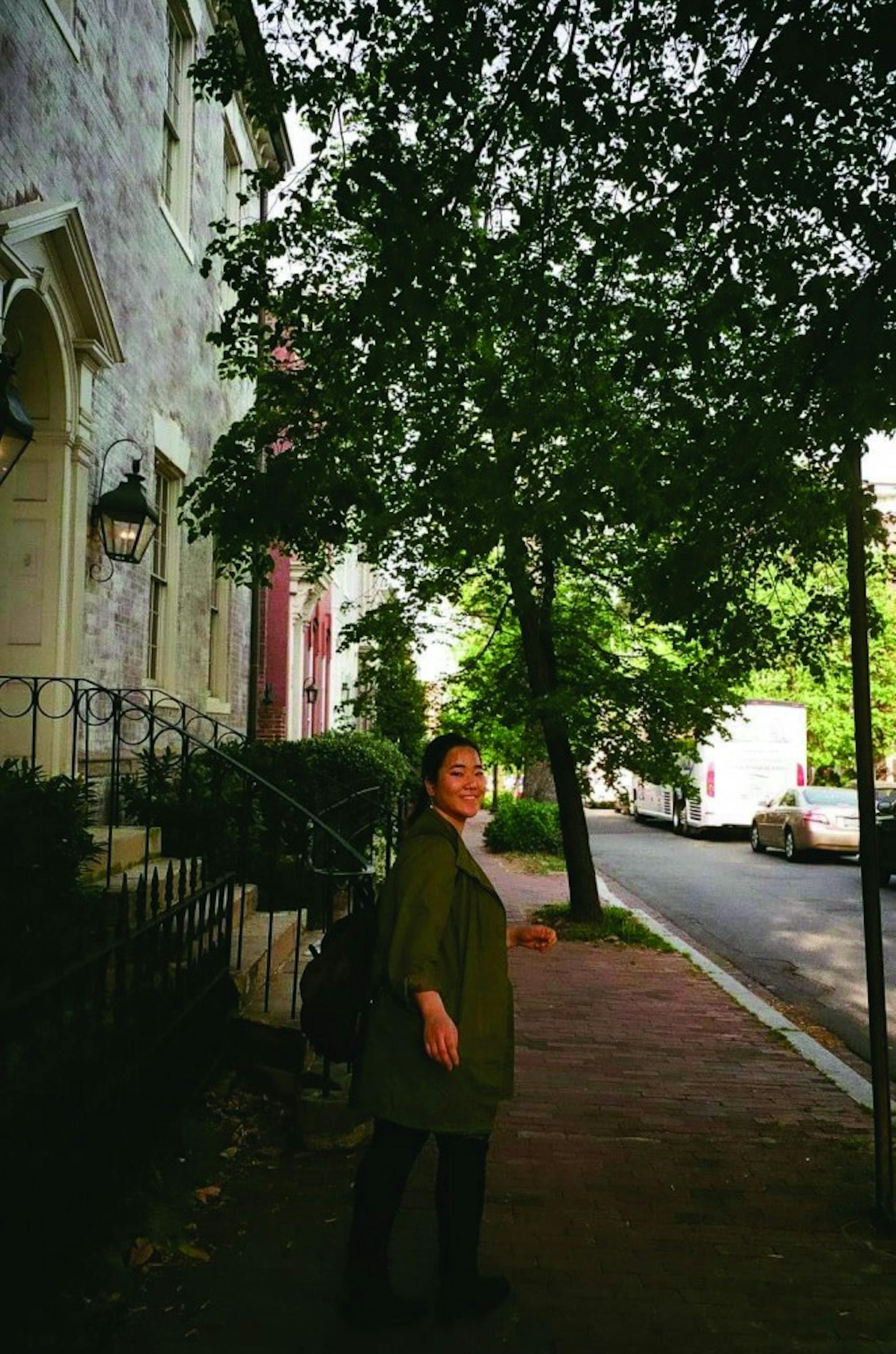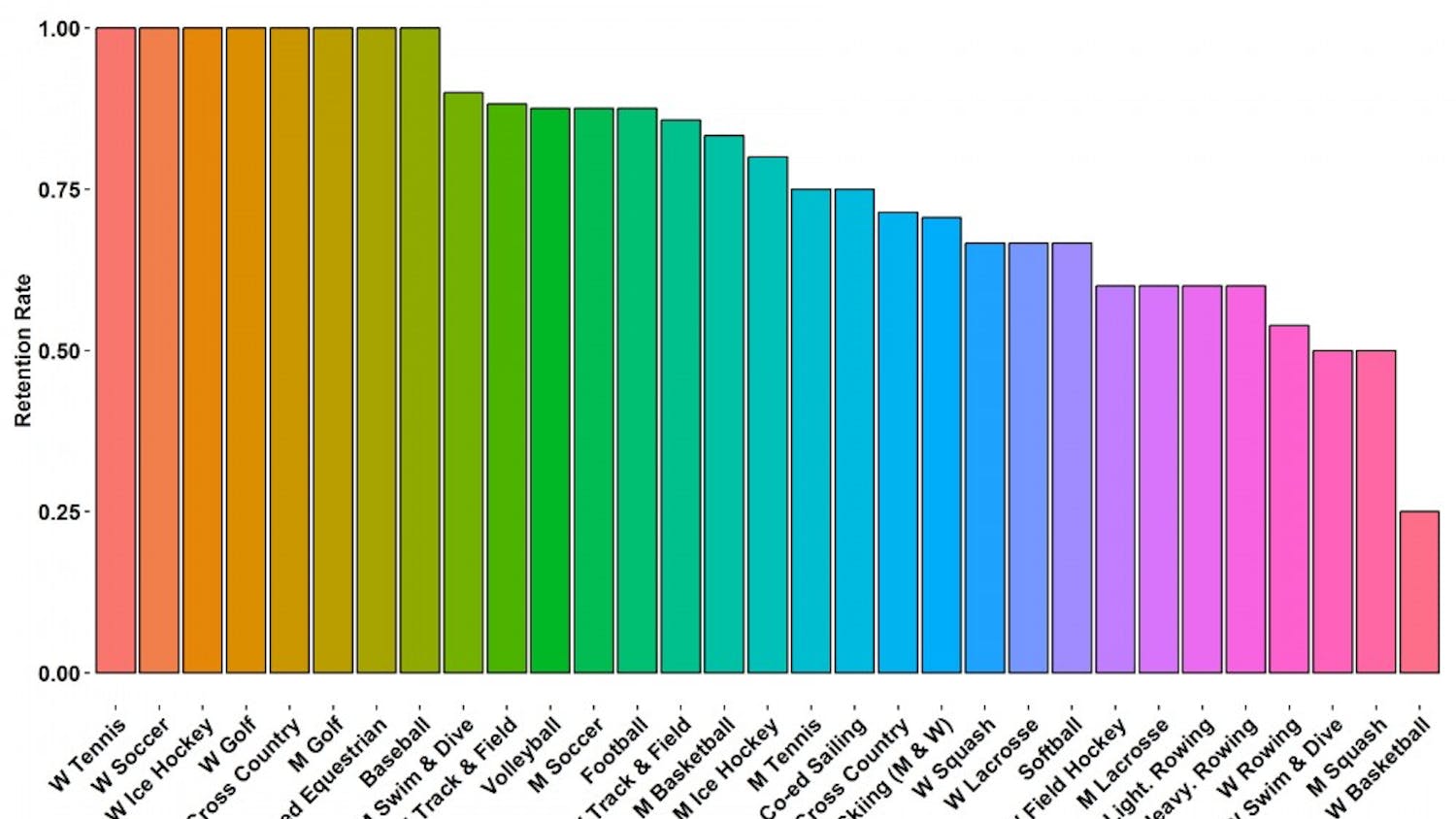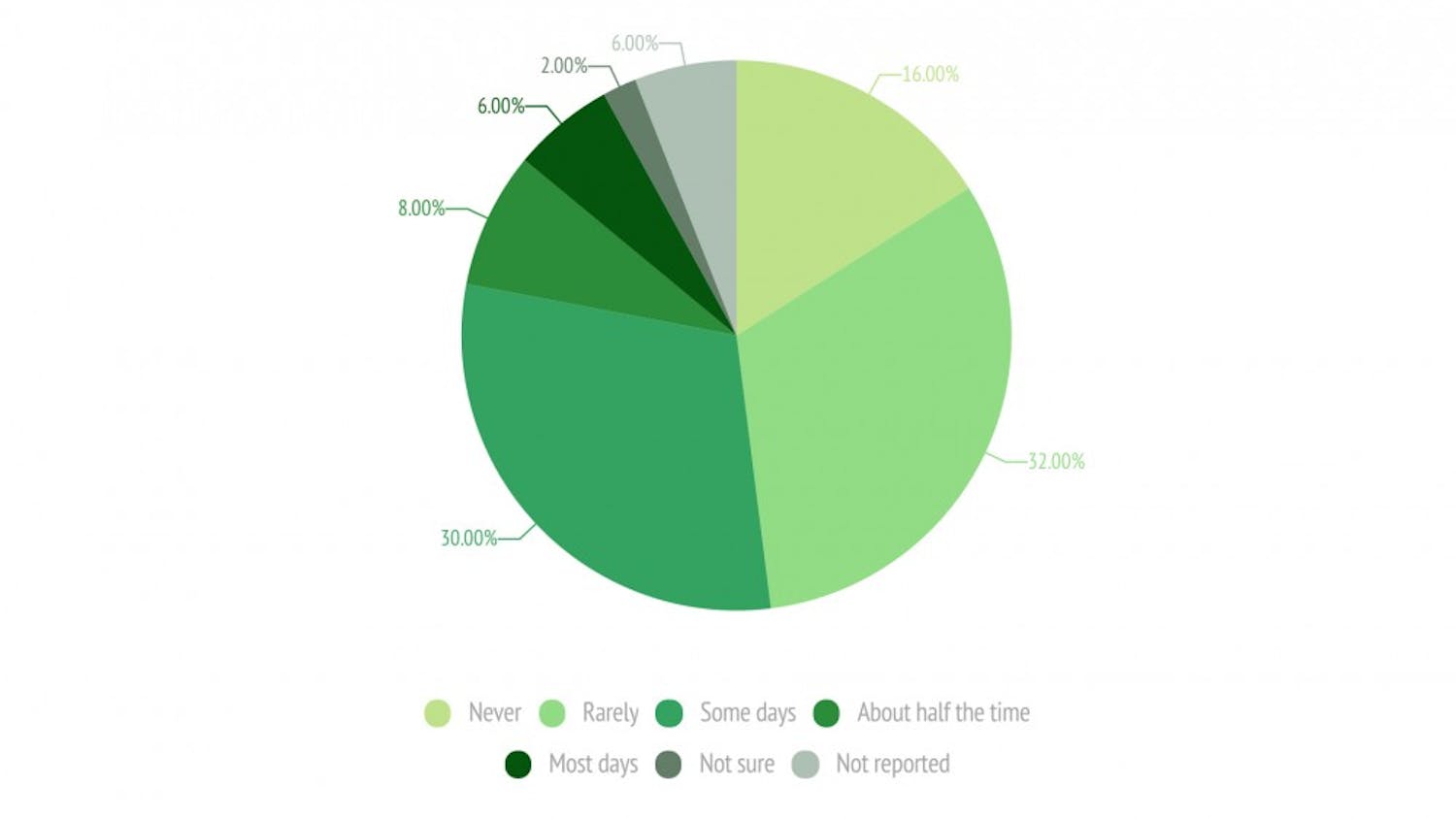There was a moment a few terms ago when I was trekking back home after another long night in the library. It was snowing and I was miserable and exhausted, my paper still unfinished, my anxiety acting up in full force. The walk from Baker-Berry to the Lodge was a long one, made even longer from the construction at the Hood Museum of Art and because the Hopkins Center for the Arts is closed after midnight. I remember stopping for a moment, looking at the empty street at 2 a.m. and thinking to myself that perhaps this would be a moment I would still remember and miss after my time here ends.
Here’s another moment that occurred during the first week of fall term my freshman year. I met with an upperclassman mentor who had been matched with me through one of the infinite number of mentor programs that had cluttered my inbox since July. We sat at a table next to the windows at Collis Café, and I watched students bound in and out of the space, impressive in their ability to grab food and leave without asking an incessant number of questions.
My mentor talked to me for a bit about what I wanted out of Dartmouth and how it had been so far, and I could tell that she was slowly growing more and more annoyed with me. I still can’t quite figure out why — perhaps it was my boundless optimism, my hesitation in asking questions, the clear lack of willingness to move out of my comfort zone and ask for what I wanted. I became nervous and began asking her about herself, and she told me that she was ready to leave Dartmouth as soon as possible.
I didn’t speak with my mentor after this, and I found other upperclassmen who were willing to tell me what I wanted to hear: Dartmouth is home, Dartmouth is the place for me, dear old Dartmouth. Of course there are problems, they would say, but that’s not unique to this place — it’s what happens when you’re a college student. I wondered if I would become similar to my mentor, bitter and somewhat distant from this place, or if I would remain nostalgic even over the more exhausting parts of my experience. I suppose that’s the decision all seniors face in these last few days before graduation.
Here’s another moment: Someone asked me, “Why did you come to Dartmouth?” I think I’ve asked this question, been asked this question, heard this question asked to others, over a hundred times. Probably more. It’s a valid question, made more valid by how frequently it’s asked. Why wouldn’t you want to know the reasons for coming to this campus, isolating yourself in New Hampshire for some of the most formative years of your life?
There’s an answer that stands out to me: the people. It stands out because the people are probably the least consistent element of this campus, perhaps the most ephemeral and impermanent. For me, this answer is unreliable and even a little deceptive. There’s no guarantee that the people who make Dartmouth great for someone else will make it great for me. There’s no guarantee that they’ll be around when I am here, or that they will stay and become a part of my life.
But regardless, it’s also true that my answer to “Why Dartmouth?” is still the same: the people. Or more specifically, my people. These people have become a natural part of my life, which is quite a wonderful thing. It’s true that the optimism of freshman year begins to fade somewhat rapidly, for some even more quickly than others. But I still find myself captivated by the life cycles of these friendships, how they begin without much reason and yet become the reason in and of themselves.
Here’s another moment: sitting in my friend’s apartment, watching the sun come in through the windows. I’ve spent a lot of time here over the past year, feeling like it’s become my foxhole, my escape hatch away from a campus that sometimes overwhelms.
At Dartmouth, we talk a lot about spaces — safe space, making space, taking up too much space, an inclusive space. For the past four years, I’ve navigated my college experience by constantly examining the physical boundaries of myself and my surroundings. In this college that is in the middle of nowhere, surrounded by miles of green land and a rushing river, I have sometimes worried that there is not enough space for me.
This is not something exclusive to Dartmouth, but living in Hanover, New Hampshire can make it feel so much larger and terrible. In sociology, there is a concept called “collective imagination.” Out of this collective imagination emerges a culture, a binding identity. College sometimes operates as a microcosm, and I’ve since found that even if one tries, desperately, to participate in this collective imagination, it can still reject you.
I’ve said that people are the most ephemeral part of this campus, but this collective imagination is not. It creates values and moral codes that are based on how many people are willing to participate. Perhaps when we say that the reason we came to Dartmouth is because of the people, we are talking more about this collective imagination. I can say that my freshman-year optimism is tied to my desire to participate in this imagination; I have wanted to be part of it since I first stepped foot on this campus. In my first few terms, I truly believed I could be.
There are many reasons why I have sometimes felt completely rejected by this collective; I won’t go into them here. I know that there are people who have felt similarly, or those who have sometimes decided to reject the collective imagination on their end. In those moments, it’s hard to justify my reasons for being here, in this space. It’s hard to believe that there is any room for me at all.
Yet in my foxhole, with the people I have loved and connected with in these past few years, I’ve found another Dartmouth. It might not be perfect or what I imagined when I arrived on this campus, but it is something I am grateful to have experienced. For this, I will be nostalgic and regretful to leave when the time comes. For this, I can tell others that I was glad to have been at this small and isolated campus — to have become a part of this place.
Joyce Lee ’19 is a former arts editor of The Dartmouth.




